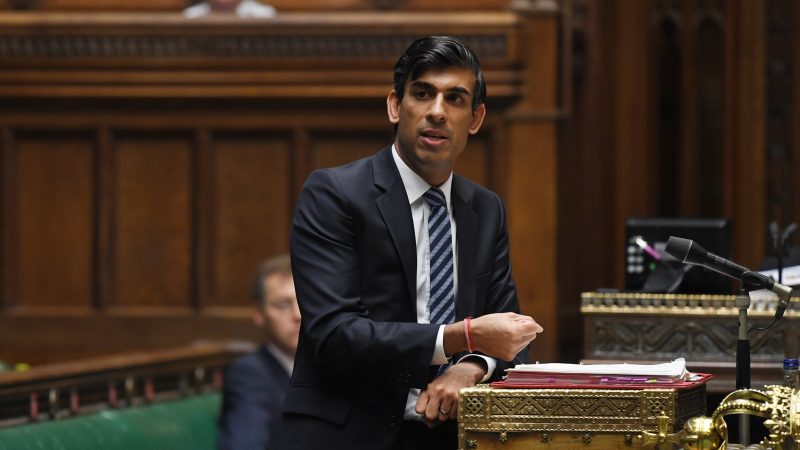
Chancellor Rishi Sunak and his opposite on the Labour benches Anneliese Dodds have clashed in parliament today over the future of UK financial services in terms of both post-Brexit and green economic plans.
Describing financial services as “one of the UK’s most productive and innovative sectors”, former banker Rishi Sunak said the industry would be key amid the coronavirus economic recovery and post-Brexit.
“We want to renew the UK’s position as the world’s pre-eminent financial centre,” the Chancellor said, adding that the UK government intends to make the country a “world leader in the use of green finance”.
Sunak went on to tell MPs that the finance industry adds over £130bn of value to the UK economy, employs over one million people and “has been a critical source of revenue to support the NHS” through Covid.
The Chancellor said he wanted to bust the “myth” that financial services are synonymous with the City of London, highlighting that two thirds of those employed in the sector work outside London, such as in Edinburgh and Leeds.
“As we leave the EU, we have an opportunity to set out a new vision for this sector,” Sunak told the Commons. He said the country now must decide how to proceed on regulation and “do what’s right for the UK”.
“We will use equivalence when it is in the UK’s economic interest to do so,” the Chancellor said, before insisting the UK is forming stronger relationships with non-EU countries such as Switzerland, India and Japan.
Labour frontbencher Jonathan Reynolds, responsible for work and pensions, described the statement as “a lot of words to say everything they promised on market access for financial services post-Brexit hasn’t materialised”.
Anneliese Dodds used her response in the chamber this afternoon to say “this government’s mishandling of ensuring market access for our firms to our largest trading partner” was “the elephant in the room”.
1 in 14 UK workers are employed in financial-related services, the Shadow Chancellor said. Yet with just weeks until the Brexit transition period ends, whether the EU will determine that UK rules are equivalent to theirs is still unknown.
Dodds pointed that the deadline for achieving equivalence with the EU was earlier this year in June, and told the House of Commons that the UK had filled in just four of the 28 forms needed to be completed by that date.
Chancellor Rishi Sunak also announced that the UK government would make the financial services sector greener through mandating climate disclosures by large companies and financial institutions by 2025.
Sunak unveiled in his statement today plans to implement “a new green taxonomy”, classifying what it means to be green, and to issue the UK’s first ever sovereign green bond next year “subject to market conditions”.
Dodds replied: “The UK produces 1% of global emissions but companies and financial institutions based here produce 15% of those omissions. Action from government to match the ambitions of many in green financial services can’t come too soon.”
Urging the government to ban the financing of fossil fuel projects through UK export finance, after £6bn was pumped into overseas fossil fuel projects in this way over the last decade, she argued: “Recent developments have unfortunately gone in the wrong direction.”
Labour said it supported the move towards greater disclosure, but noted that “they’re only relating to a ‘comply or explain basis’ with full implementation not set for many years” and called for mandatory reporting in 2021-2022.
While Tory MP Andrew Griffith celebrated “the climate change Chancellor”, Labour MP Alison McGovern accused Sunak of delivering the statement to help his reputation following the defeat of right-wing populism in the US.
Labour backbencher Stella Creasy drew attention to borrowing charges amid a fresh economic crisis and asked the Chancellor to “please bring in a cap on the cost of all credit” to prevent companies from exploiting constituents.




More from LabourList
‘Labour is being badly misled on housing’
Reeves bets on patience over populism
‘Energy efficiency changes must work for older private renters’